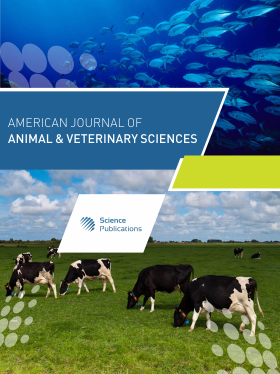Meta-Analysis of Performance and Intestinal Histomorphology of Broilers Fed Diets Containing Fermented Tropical Seed Meals
- 1 Department of Animal Science and Technology, Federal University of Technology, Owerri, Imo State, Nigeria
- 2 Department of Agriculture and Animal Health, University of South Africa, Florida Science Campus, Florida, South Africa
Abstract
There are variable results on the effect of dietary Fermented Tropical Seed Meal (FTSM) intervention on the growth and intestinal histomorphological indices of broilers. This meta-analysis aimed to investigate the effects of FTSM intervention on the growth performance and intestinal histomorphology of broilers. A database of 31 peer-reviewed studies that assessed the effect of dietary FTSM intervention on growth performance [Feed Intake (FI), Average Daily (ADG), Feed Conversion Ratio (FCR)] and intestinal histomorphological parameters such as Villus Height (VH), Crypt Depth (CD) and VH/CD ratio of the small intestine of broilers was developed and used. Data on growth performance and intestinal histomorphology were pooled using a random effect model and results were presented as Standardized Mean Differences (SMDs) at 95% Confidence Intervals (CIs) for each study. Data extracted from the 31 studies utilized for the meta-analysis were analyzed using Open Meta-analyst for Ecology and Evolution (OpenMEE) and R statistical software. Results revealed that FTSM increased FI (SMD = 0.16; p = 0.015) and ADG (SMD = 0.15; p = 0.032) compared to the controls. Similarly, dietary FTSM increased the VH of the duodenum, jejunum, and ileum and reduced the CD of the ileum, but did not affect the CD of the duodenum and jejunum. Results also indicate that the VH/CD ratio of the duodenum, jejunum, and ileum of broilers fed FTSM-based diets was significantly (p<0.05) higher than the controls. The subgroup results suggest that Ross broilers fed fermented grape seed meal and soybean meal at an inclusion level of >20% during the finisher production phase had increased FI and ADG. There was evidence of significant (p<0.05) heterogeneity among the studies included in the meta-analysis and the meta-regression analysis results showed that seed type, feed class, and broiler strains explained most of the heterogeneity. Fermented tropical seed meal can be included at levels more than 20% to improve growth performance and enhance histomorphological indices of the small intestine of broilers. This study also established guidelines for standardized experimental designs on the use of dietary fermented tropical seed meals to enhance broiler performance.
DOI: https://doi.org/10.3844/ajavsp.2024.377.392

- 224 Views
- 140 Downloads
- 0 Citations
Download
Keywords
- Feed Conversion
- Feed Intake
- Intestinal Histology
- Meta-Regression
- Weight Gain
